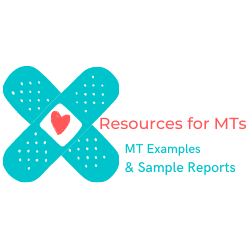DATE OF VISIT: MM/DD/YYYY
REASON FOR VISIT: This (XX)-year-old female presents today in followup in General Internal Medicine. She is accompanied by her son for visit today.
SUBJECTIVE: The patient’s son mentions the possibility of some memory changes. This has been the case since August after the patient’s hospitalization for percutaneous nephrolithotomy. She has had some issues with memory and has had mistakes in some appointments. There has been some improvement, and in the interim, she has been placed on CPAP which she has used for the last month. This has improved her daytime fatigue and general well being significantly.
The patient denies any unusual headaches or other visual disturbances. No chest discomfort. No shortness of breath. No change in bowel habits. No change in bladder habits. No significant heartburn. Review of systems is otherwise negative. The patient does report that her father had passed away from an intracranial aneurysm and she has concerns about this.
PAST MEDICAL HISTORY: Calcium-based renal stones, left percutaneous nephrolithotomy in August, total abdominal hysterectomy, dyslipidemia, hypertension, ocular migraines, osteoarthritis of the knees, left ureterovesical junction stone, tubular adenoma of the colon and colonoscopy, right wrist fracture, osteoporosis by bone density, mixed foot and ankle edema on the left side, obstructive sleep apnea, bilateral cataracts, pulmonary nodule, minimally complex renal cysts.
CURRENT MEDICATIONS:
1. Lotrel 5/20 daily.
2. Lescol XL 80 mg daily.
3. Aspirin 81 mg daily.
4. Atenolol 25 mg daily
5. Fosamax 70 mg weekly.
6. Vitamin D 1000 units daily.
7. Protopic ointment as needed.
ALLERGIES: No known drug allergies.
SOCIAL HISTORY: No cigarettes. No alcohol.
FAMILY HISTORY: Father had hypertension and cerebral aneurysm, passed away in his late 70s. Mother deceased at 90; had a stroke. The patient has a daughter with melanoma, 2 brothers with skin cancer, 1 with dyslipidemia, 1 sister with skin cancer and dyslipidemia. Paternal aunt had colon cancer in her 40s. A cousin has had breast cancer.
PHYSICAL EXAMINATION:
GENERAL: The patient is a well-appearing female, in no distress. She is quieter than usual. She is alert and oriented x3, pleasant and cooperative.
VITAL SIGNS: Blood pressure is 118/74. Weight is 184 pounds.
HEENT: Extraocular movements are intact. Pupils are equal, round and reactive to light. Anicteric sclerae. Oral cavity and oropharynx are negative.
NECK: Supple. No lymphadenopathy. No bruits.
CHEST: Clear to auscultation.
HEART: Regular rate and rhythm. No murmurs, rubs or gallops.
AXILLAE: No lymphadenopathy.
BREASTS: Skin and nipples within normal limits. No masses noted to either side.
ABDOMEN: Obese, soft, nontender, nondistended with no gross organomegaly.
EXTREMITIES: Has 2+ dorsalis pedis pulses bilaterally. No significant peripheral edema. She does have small reticular and varicose veins of the lower extremities, but there are no open skin lesions.
ASSESSMENT AND PLAN:
1. Pulmonary nodule: The patient will continue to be followed in Pulmonary.
2. Obstructive sleep apnea: She is going to be following up with Dr. Doe. She has CPAP underway.
3. Tubular adenoma of the colon: Schedule a followup colonoscopy.
4. Cognitive change: We are going to schedule an MRI and MRA of the brain and refer her to Geriatrics at her son’s request.
5. Hypertension: Blood pressure is very well controlled.
6. Dyslipidemia: Update lipids.
7. Routine healthcare maintenance: Recommended a 10-pound weight loss and encouraged regular exercise and further weight loss. The patient will be due for a mammogram in 3 months. We will see her back in 6 months to follow on these issues.
